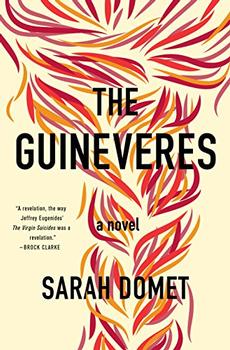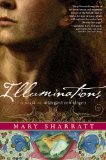Summary | Excerpt | Reviews | Beyond the book | Read-Alikes | Genres & Themes | Author Bio

A History
by Helen CastorFrom the author of the acclaimed She-Wolves, the complex, surprising, and engaging story of one of the most remarkable women of the medieval world - as never told before.
Helen Castor tells afresh the gripping story of the peasant girl from Domremy who hears voices from God, leads the French army to victory, is burned at the stake for heresy, and eventually becomes a saint. But unlike the traditional narrative, a story already shaped by the knowledge of what Joan would become and told in hindsight, Castor's Joan of Arc: A History takes us back to fifteenth century France and tells the story forwards. Instead of an icon, she gives us a living, breathing woman confronting the challenges of faith and doubt, a roaring girl who, in fighting the English, was also taking sides in a bloody civil war. We meet this extraordinary girl amid the tumultuous events of her extraordinary world where no one - not Joan herself, nor the people around her - princes, bishops, soldiers, or peasants - knew what would happen next.
Adding complexity, depth, and fresh insight into Joan's life, and placing her actions in the context of the larger political and religious conflicts of fifteenth century France, Joan of Arc: A History is history at its finest and a surprising new portrait of this remarkable woman.
Joan of Arc felt a little like two different books with conflicting goals – early chapters strictly about French history and infighting, then chapters about Joan the Maid and her remarkable success, and then returning to French history after Joan's death. Both narratives are exceptionally well written, and although I have very limited knowledge of the subjects, they kept me riveted. Anyone interested in learning more about this period will want to read Joan of Arc: A History; Castor's outstanding ability to convey the important events and people that made up the political landscape make this one a winner...continued
Full Review
(668 words)
This review is available to non-members for a limited time. For full access,
become a member today.
(Reviewed by Kim Kovacs).
Popular history remembers Joan of Arc but not so much Yolande of Aragon (1384 – 1442) who, according to Helen Castor's Joan of Arc, was more influential in placing Charles VII on the throne of France than "The Maid of Orleans," or indeed of the rather weak-natured Charles himself.
 The kingdom of Aragon was a wealthy, independent monarchy in northeastern Spain from 1035 to 1714 (when its constitutional system was swept away at the end of the War of the Spanish Succession). Born in Saragossa, Yolande was the eldest daughter of Aragon's king, John I (1387 -1396) of the House of Barcelona and his second wife Yolande of Bar, who in turn was related to the Valois family to which France's monarchs of the era belonged (Charles V was ...
The kingdom of Aragon was a wealthy, independent monarchy in northeastern Spain from 1035 to 1714 (when its constitutional system was swept away at the end of the War of the Spanish Succession). Born in Saragossa, Yolande was the eldest daughter of Aragon's king, John I (1387 -1396) of the House of Barcelona and his second wife Yolande of Bar, who in turn was related to the Valois family to which France's monarchs of the era belonged (Charles V was ...
This "beyond the book" feature is available to non-members for a limited time. Join today for full access.

If you liked Joan of Arc, try these:

by Sarah Domet
Published 2017
To four girls who have nothing, their friendship is everything: they are each other's confidants, teachers, and family. The girls are all named Guinevere - Vere, Gwen, Ginny, and Win - and it is the surprise of finding another Guinevere in their midst that first brings them together.

by Mary Sharratt
Published 2013
Skillfully interweaving historical fact with psychological insight and vivid imagination, Sharratt's redemptive novel, Illuminations, brings to life one of the most extraordinary women of the Middle Ages: Hildegard von Bingen, Benedictine abbess, visionary, and polymath.
The whole problem with the world is that fools and fanatics are always so certain of themselves, and wiser people ...
Click Here to find out who said this, as well as discovering other famous literary quotes!